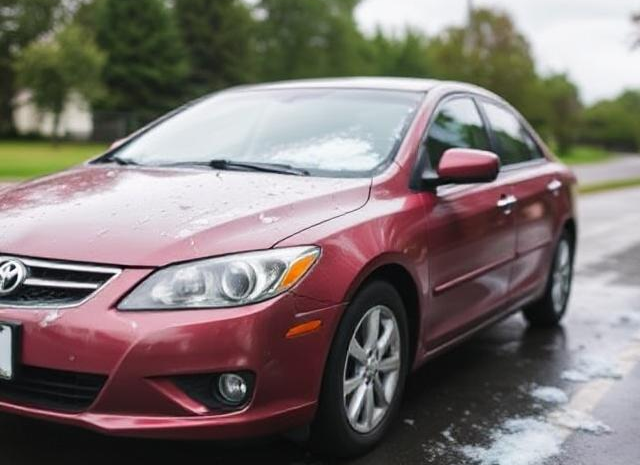
Does Auto Insurance Cover Hail Damage?
Auto insurance coverage for hail damage primarily depends on the type of coverage included in your policy.
Comprehensive Coverage:
If your policy includes comprehensive coverage, it typically covers damage to your vehicle caused by events other than collisions, including hailstorms. In the event of hail damage, your insurer would cover the repair costs minus your deductible.
Liability Coverage:
Liability insurance, which is often required by law, covers damages you cause to others but does not cover damage to your own vehicle, including hail damage.
Steps to Take if Your Vehicle Suffers Hail Damage:
- Assess the Damage: Inspect your vehicle for hail damage, noting the extent and severity.
- Document the Damage: Take clear photographs or videos of the affected areas to provide evidence for your claim.
- Review Your Policy: Check your insurance policy to confirm that you have comprehensive coverage and understand your deductible.
- File a Claim: Contact your insurance provider promptly to report the damage and initiate the claims process.
- Obtain Repair Estimates: Your insurer may require repair estimates from certified auto repair shops to process your claim.
Considerations:
- Deductible vs. Repair Costs: If the estimated repair costs are close to or less than your deductible, it might not be worthwhile to file a claim, as the reimbursement would be minimal. progressive.com
- Premium Increases: Filing a claim for hail damage under comprehensive coverage typically does not result in increased insurance premiums. libertymutual.com
Preventive Measures:
- Seek Shelter: When a hailstorm is forecasted, park your vehicle in a garage or covered area to minimize potential damage.
- Use Protective Covers: Consider investing in hail-resistant car covers if you live in regions prone to hailstorms.
Understanding your auto insurance coverage and taking proactive steps can help you effectively manage and mitigate the impact of hail damage on your vehicle.

